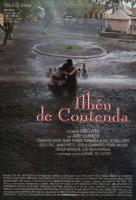Djam Neguin
Articles tagged with Djam Neguin
Tag Archive
- #NovaOndaCaboVerde
- ...
- african studies
- afropolitismo
- angolan identity
- Angolan Journalist
- anti-colonial struggle
- ariella aisha azoulay
- Artemisa Ferreira
- Atlas da Solidão
- beirut
- black art
- Black body
- black feminism
- black music
- Black womanhood
- Brit Funk
- Câmara Municipal de Lisboa
- Capitalismo
- caribbean
- carnivalesque protest
- celebration
- choreographer
- Cinema Brasileiro
- Circulation; Symbolic Ethnicity; Emotional Communities; Invention of Tradition; Memory of Place; Transculturalism
- Claire
- Cleo Diára
- cultural movement
- culture programme
- curator
- dance show
- dd
- ddd
- descobrimentos
- dia da consciência negra
- Djaimila Pereira de Almeida
- e a Raquel da Silva. Menciono também de passagem: Homi Bhabha
- édouard glissant
- ethnic minority workers
- feminism
- FLÁVIO CARDOSO
- forgetting
- Germano de Almeida
- germany
- Guinea-Bissau
- Haile Gerima
- heteronormative
- historicism
- humanity
- ify obi
- interpretação do Brasil
- Kiluanji Kia Henda
- LGBTI
- língua caboverdiana
- Louise Narbo
- lusitanismo
- Mahla Filmes
- mapa
- masks
- Middle East
- migrations
- Museu afro-brasileiro
- museu das descobertas
- Music
- música
- músicas do mundo
- Neliswe Xaba
- New York City
- ngorongoro
- Nigeria
- O que temos a ver com isto? O papel político das organizações culturais
- opression
- paraíso
- PCP
- peinture
- preforming artists
- revolution
- Rita GT
- Robyn Orlin
- Roman Mars
- Sao Tomé et Príncipe
- sculpture
- security
- sello pesa
- series
- settlers
- sexuality
- south
- Spain
- Tarrafal
- Tchitundo-hulo
- teatro
- Territories
- undefined
- viagem
- war
- welket bungué
- work
- “home languages”
- “Pessoa
 It’s about contesting narratives: not only narratives about Africa, Africans, Capeverdeans, and about our diverse perspectives, but also narratives about what cinema is, and what it can be, who gets to watch and be watched, who gets to speak and be heard. It is slow but necessary work. It is the work of re-inscribing our collective imagination with images that belong to us and that, in turn, transform us, and then the world.
It’s about contesting narratives: not only narratives about Africa, Africans, Capeverdeans, and about our diverse perspectives, but also narratives about what cinema is, and what it can be, who gets to watch and be watched, who gets to speak and be heard. It is slow but necessary work. It is the work of re-inscribing our collective imagination with images that belong to us and that, in turn, transform us, and then the world. 